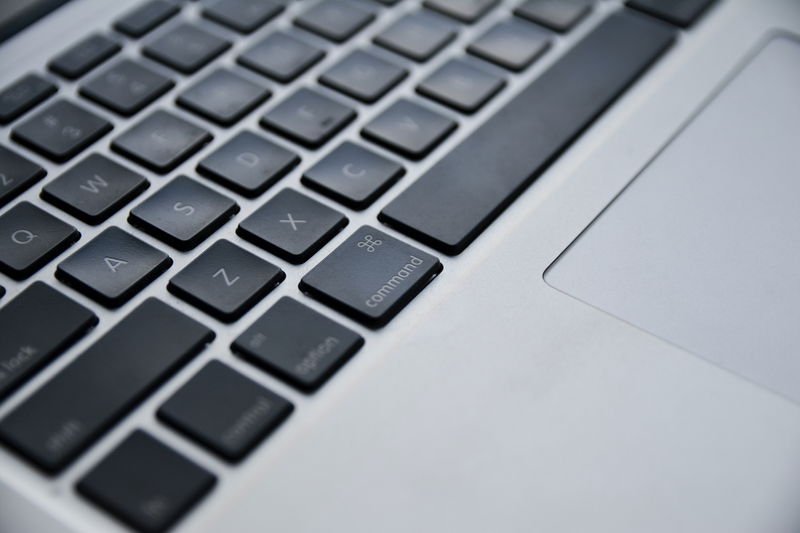Security Risks Involved with Social Media Usage
Social media has become an integral part of life for many people. As a result, it has become a major attack vector for hackers and malicious actors who try to gain access to confidential information. This article looks at some of the common security risks associated with social media usage and explores ways to reduce the likelihood of experiencing them.Table of Contents:

Phishing
Phishing attacks are a severe security risk when it comes to social media. These attacks seek to steal users private information such as banking and credit card details by masquerading as legitimate companies through fake websites or emails.It is important for users to recognize and protect themselves from these threats. Users should be suspicious of any email or website that asks for their personal information, as this could be a sign of potential phishing attack. It is also important to be aware that legitimate companies rarely email individuals and ask them to submit their credit card or banking details.
Do you need a website? Want to build a website but don't know where to start? Our website builder is the perfect solution. Easy to use, and with the ability to customize to fit your business needs, you can have a professional website in no time.
Malware and Ransomware
Malware and ransomware are two of the most common security risks involved with social media usage. Malware, or malicious software, is any type of software that can be used to maliciously access or damage computers or networks. Ransomware is a type of malicious software that encrypts or locks data on a computer system until a ransom is paid. Hackers or cybercriminals gain access to a computer system by leveraging social media platforms and launching a malware attack or ransomware attack. Users should take extra security precautions on social media platforms to ensure that their personal data is protected. It is important to be aware of any suspicious activity, such as suspicious links, emails, and messages. Additionally, users should be sure to update their software regularly and use strong passwords to secure their accounts.Data Privacy
Data Privacy is an important factor to consider when it comes to social media usage. Always familiarize yourself with a website's privacy policy before creating an account and consider the risks associated with posting personal information. When creating an account, be aware of settings related to how your data is shared and who can access it. It is generally safest to keep your settings closed off and only share information with those you trust. Deleting information, or making it private, is always a good option to mitigate data privacy risks. Building a website with SITE123 is easy
Information Leakage
Information leakage is one of the security risks associated with social media usage. Through a data breach or other means, sensitive information that is shared on social media platforms can find its way into the wrong hands. This can include Social Security numbers, personal addresses, or financial information. It is highly recommended that users employ strong privacy settings on social networks and limit the amount of personal information they post. To mitigate the risk of information leakage, users should also be careful with what they post online, review company policies related to shared information, and be selective with who they give access to this information. Information leakage is not always easy to detect, so creating a proactive and effective social media security strategy is key for any organization.Login Information
Login information are an important aspect of social media security. In order to prevent unauthorised access to a user’s account, a strong and complex password is recommended. Passwords should contain random letters, symbols and numbers, in addition to be variation of uppercase and lowercase letters.User profile information, such as contact details, should not be openly disclosed as this makes it easier for malicious users to gain access to a user’s account. All passwords and login credentials should be unique and changed frequently. Authentication should also be used to ensure further security of an account.
Finally, users should not share their credentials with others and maintain the confidentiality of their credentials. It is ultimately the user’s responsibility to make sure their accounts are secure, by following the recommended security protocols and keeping their login credentials private at all times.
Social Engineering Attacks
Social engineering attacks are a major security risk associated with using social media. These attacks use human psychology to persuade unsuspecting victims to provide confidential data, such as passwords and bank details. Attackers may use different tactics including Impersonation, Phishing, Vishing and Social Media Malware to carry out malicious activities.Impersonation attacks involve hackers creating fake profiles and pretending to be someone known to the victim. Through the use of malicious links, attackers can gain access to personal information or infect devices.
Those attacks use convincing emails, messages or websites to solicit confidential data, such as passwords and bank details, from unsuspecting victims. Vishing refers to attackers using voice-based technologies such as automated phones to phish details. Social media malware can be distributed through malicious links, allowing attackers to gain access to a victim’s personal data or infect their device.
Users need to take extra precautions while using social media in order to protect their private data and devices.
Geo-Location Tracking
Geo-location tracking is an increasingly popular feature that some social media services such as Facebook, Snapchat, and Instagram offer their users. This allows the user to “check-in” to various destinations, letting their friends and followers know where they are. While this can be a fun and convenient way to show people what you are up to, it can also pose serious security risks.If your profile is public and geo-location tracking is enabled, any individual or group that wants to can easily track your movements. This could lead to strangers showing up where you are, creating potential safety risks. Additionally, your personal information can be used to build a profile about you, including the type of places you go and what you look like, giving unknown people access to a huge amount of data about you.





